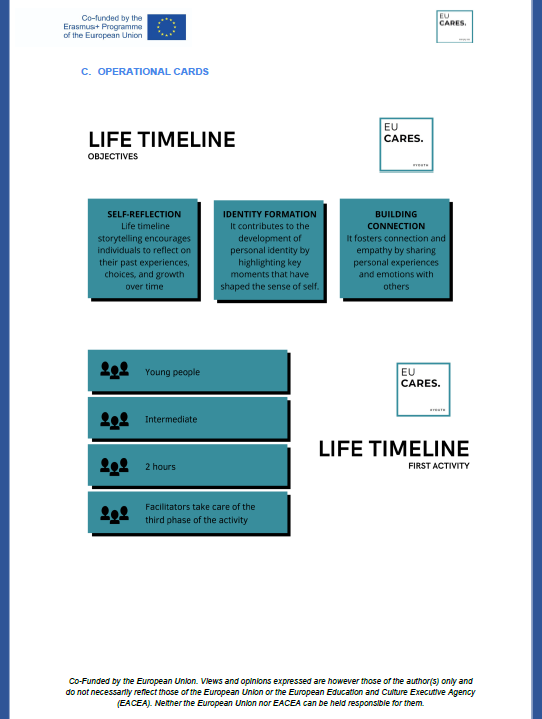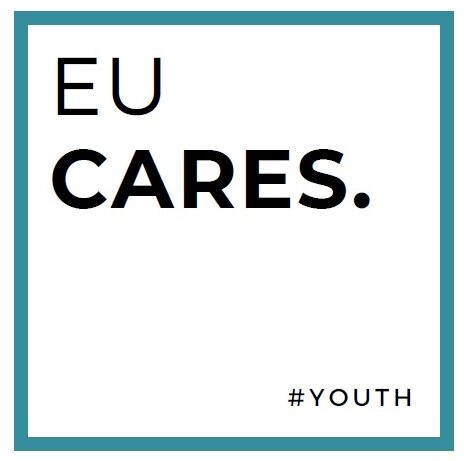
The EU-CARES e-Toolkit emerges as a response to the deep-rooted collective trauma prevailing in the Western Balkans. It has been exacerbated by historical conflicts and recent events such as the war in Ukraine. It has a focus in nurturing reconciliation, particularly among the region’s youth. The project seeks to counteract prevailing narratives of distrust and the rise of nationalism and chauvinism in the region and at a global level. EU-CARES aims to instill critical thinking and construct new narratives for collective healing and social cohesion by fostering active engagement and dialogue.
The e-Toolkit has been crafted in collaboration with youth workers, art practitioners, and storytelling experts. It offers practical resources and guidance for utilizing storytelling methodologies in various domains, from trauma healing to social inclusion. It also serves as a comprehensive framework to integrate storytelling into social challenges, such as the inclusion of minorities, and it does so thanks to the fact that it draws from diverse cultural backgrounds.
Building upon insights gleaned from surveys, focus groups, and a rigorous validation process conducted during an International Training Course in Palermo, the e-Toolkit identifies best practices across the consortium’s seven member countries (Albania, Belgium, Bosnia and Herzegovina, Italy, Montenegro, Poland, and Serbia). The training course provided rich insights into the complexities of reconciliation and trauma healing within the region, but also broadened existing perspectives towards conflict-transformation. EU-CARES’ aim is to refine and adapt the e-Toolkit to diverse national contexts, ensuring its efficacy in promoting reconciliation and conflict resolution.
Find out more on the e-Toolkit and the Operational Cards for your innovative youth work activities here.

